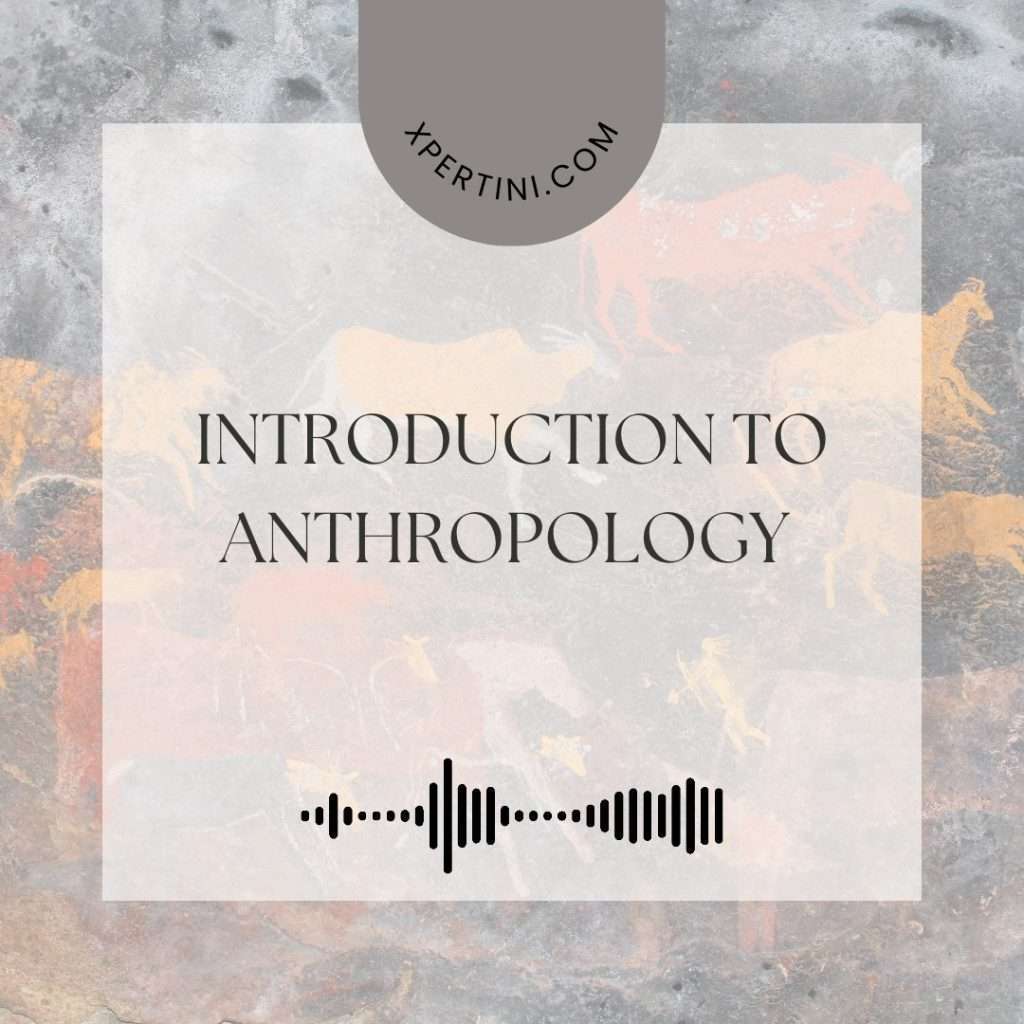Introduction to Anthropology
Course Summary
Anthropology is a captivating discipline that delves deep into the intricacies of human culture, society, and behavior. Through this course, students embark on a fascinating journey of exploration, uncovering the diverse dimensions of anthropology and its relevance in today’s world. They delve into the core principles and methodologies of anthropology, gaining insights into the systematic study of human societies, past and present.
From archaeology to linguistic anthropology, the course covers a wide array of subfields, each offering unique perspectives on the human experience. Students learn about the role of anthropology in addressing contemporary social, environmental, and cultural issues, gaining a profound understanding of the discipline’s practical applications in real-world contexts.
Throughout the course, learners engage with thought-provoking discussions and case studies, challenging their perspectives and fostering critical thinking skills. They explore the complexities of globalization, development, indigenous rights, and environmental sustainability, grappling with the ethical dilemmas and socio-cultural dynamics inherent in these topics.
In addition to theoretical knowledge, the course emphasizes practical skills and professional development opportunities. Students receive guidance on pursuing career paths in anthropology and related fields, learning about the diverse range of opportunities available and the essential skills required for success in these professions.
Through a combination of lectures, readings, assignments, and hands-on activities, students hone their analytical, research, and communication skills, preparing them for a variety of roles in academia, research, advocacy, and applied practice.
As they progress through the course, students emerge with a deeper appreciation for human diversity and the critical role that anthropology plays in shaping our understanding of the world. Armed with knowledge and skills, they are empowered to contribute positively to society and make meaningful impacts in their chosen fields.
Course Overview
Anthropology is the study of human beings and their societies in the past and present. This course provides a comprehensive introduction to the field, exploring its key concepts, methodologies, and relevance in understanding human diversity and cultural dynamics. Through a combination of theoretical insights and practical applications, students will gain a deep appreciation for the complexities of human behavior and societal structures across different cultures and time periods.
Course Objectives
- Understand the fundamental concepts and theories of anthropology.
- Analyze the methods and approaches used in anthropological research.
- Explore the diversity of human cultures and societies.
- Examine the role of anthropology in addressing contemporary social issues.
- Develop critical thinking and analytical skills through the study of cultural diversity.
- Appreciate the ethical considerations involved in anthropological research.
- Apply anthropological concepts and perspectives to real-world contexts.
- Engage in interdisciplinary dialogue and collaboration.
- Foster a global perspective and cultural sensitivity.
- Prepare for further studies or careers in anthropology and related fields.
Course Outcomes
- Define and explain the key concepts of anthropology.
- Demonstrate proficiency in applying various research methodologies used in anthropology.
- Analyze and interpret cultural artifacts and practices within their socio-historical contexts.
- Evaluate the impact of globalization on indigenous cultures and societies.
- Critically assess the ethical implications of anthropological research and practice.
- Demonstrate effective communication skills in presenting anthropological findings and arguments.
- Collaborate with peers in interdisciplinary projects integrating anthropological perspectives.
- Compare and contrast different theoretical frameworks in anthropology.
- Develop cultural sensitivity and empathy through engagement with diverse cultural narratives.
- Explore potential career paths and opportunities in anthropology and related fields.
Course Audience
- Students interested in pursuing a career in anthropology or related fields such as sociology, archaeology, or cultural studies.
- Professionals seeking to broaden their understanding of human societies and cultural dynamics.
- Individuals interested in exploring the complexities of human behavior and cultural diversity.

